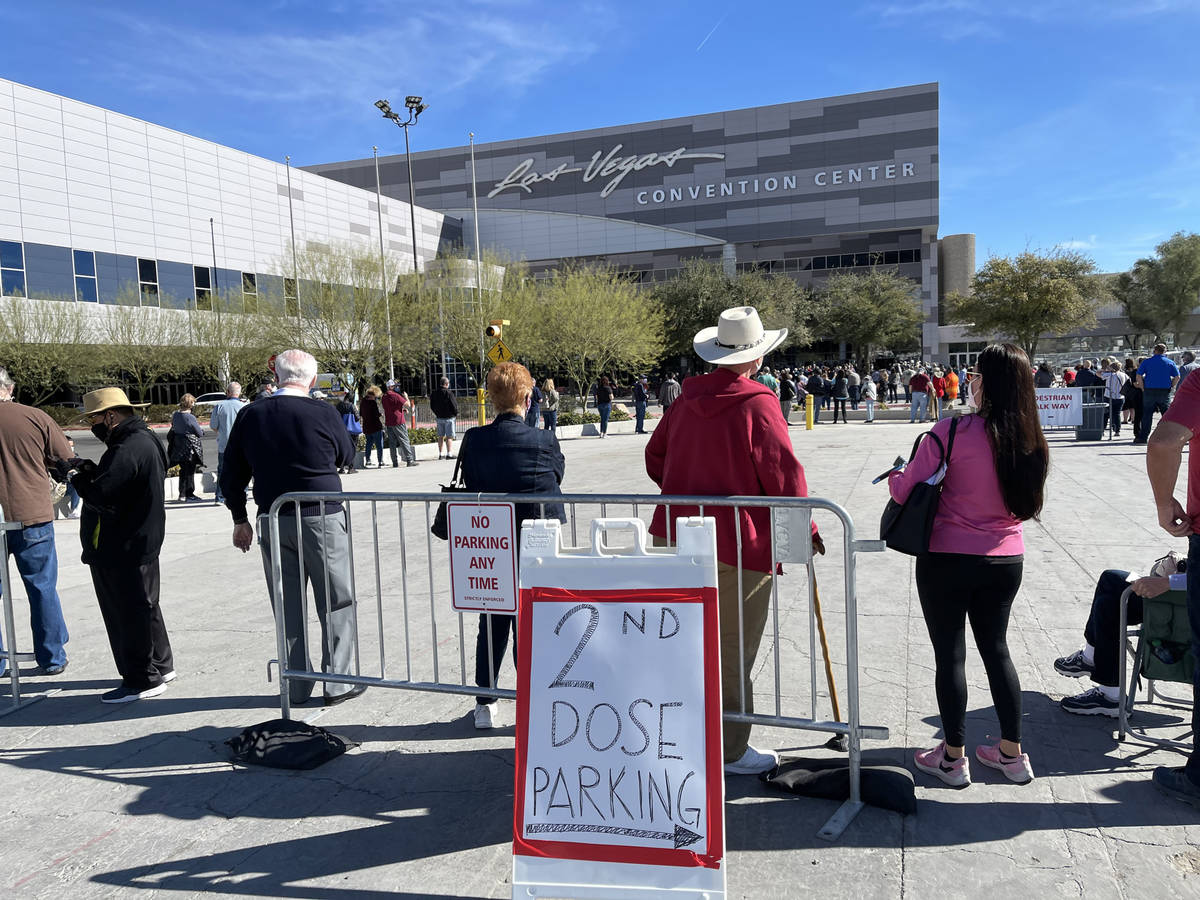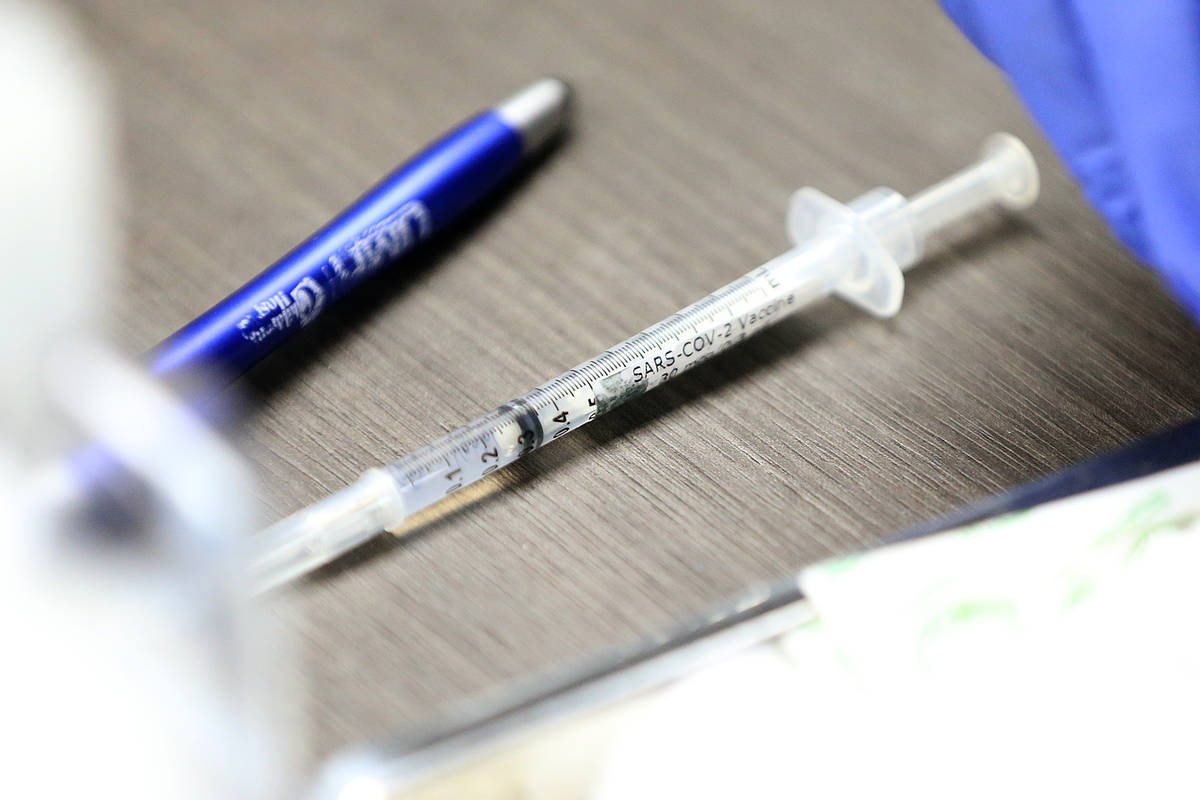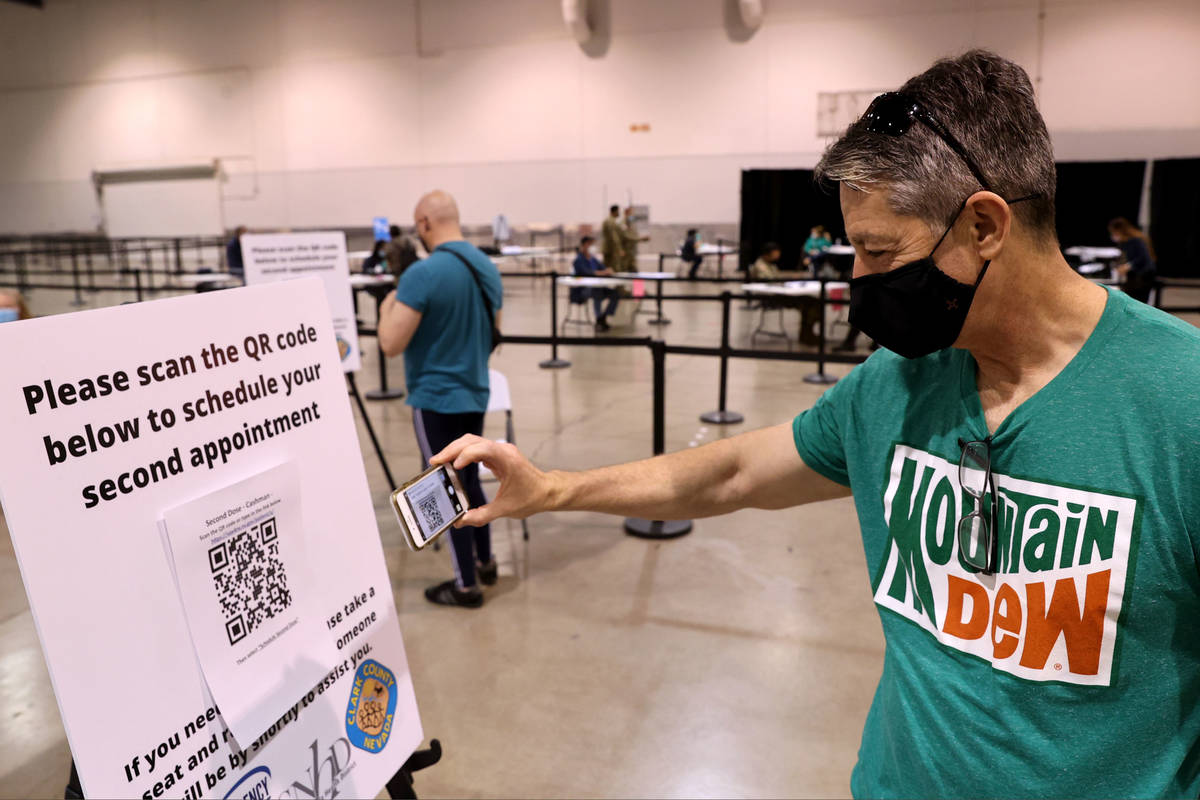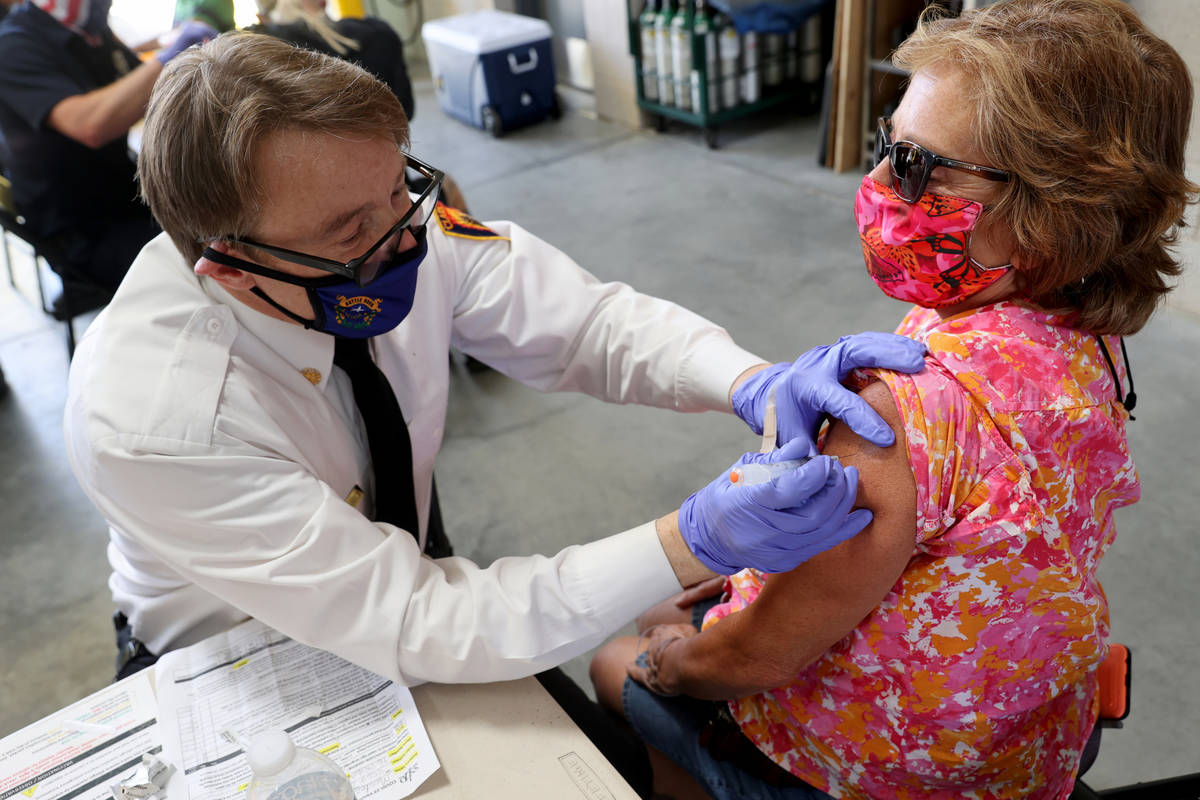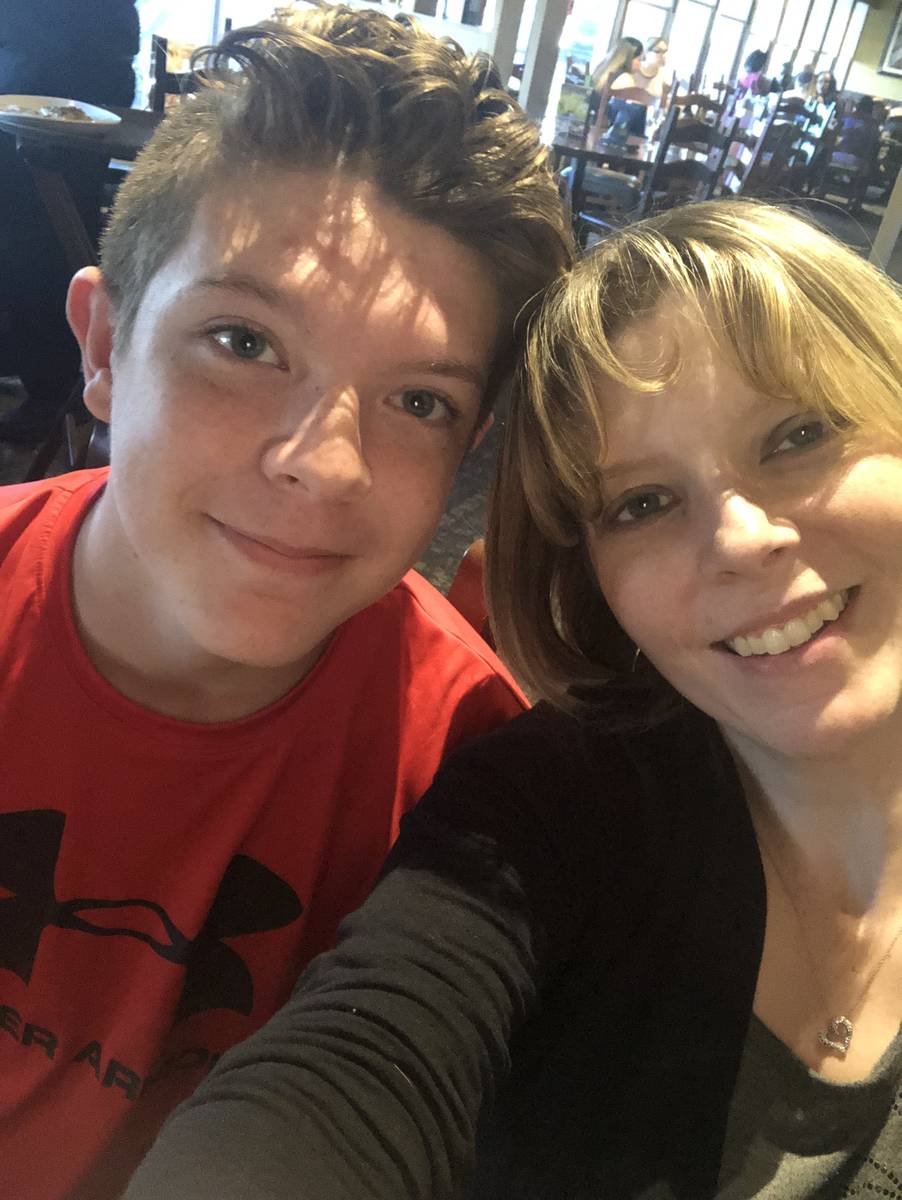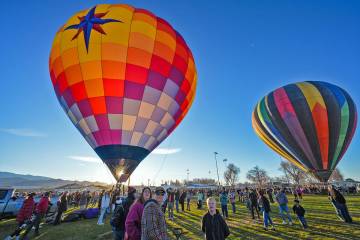More than 100K Nevadans late getting 2nd vaccine dose
More than 122,000 Nevadans are behind on getting their second shot of the COVID-19 vaccine, state health officials reported Tuesday.
However, it’s unclear how many have waited longer than six weeks, where there is limited data on the Moderna and Pfizer vaccines’ effectiveness.
Instead, the Nevada Department of Health and Human Services is tracking how many people are more than four days past due for their second dose. As of Monday, it was 12.9 percent of state residents who had initiated the vaccination process.
State-published data showed more than 1.1 million residents had begun the process, possibly indicating that more than 143,000 Nevadans were behind on their second doses. DHHS spokeswoman Shannon Litz did not immediately clarify the discrepancy, but she said the state would release more detailed data this week.
Both vaccines require two doses given weeks apart to be fully effective. The Centers for Disease Control and Prevention recommends receiving Pfizer doses three weeks apart and Moderna doses four weeks apart, but the second dose can be administered up to 42 days after the first, according to the CDC.
While officials’ most important advice is for people not to skip their second dose, “we still want people to get it as close to the correct day as possible,” UNLV epidemiologist Brian Labus said.
“When we test these vaccines, we come up with an optimal schedule to give the best protection,” he said. “So that is the target.”
The New York Times reported Monday that CDC data shows more than 5 million people nationwide have missed their follow-up doses. That number accounts for almost 8 percent of people who received a Moderna or Pfizer vaccine.
Labus said that some people may be dissuaded from getting a second dose after experiencing unpleasant side effects from their first shot. Others may be worried after reading about extremely rare but dangerous health problems some people have developed from the one-dose Johnson & Johnson vaccine. Still others may feel less urgency to finish the vaccination process after seeing COVID-19 numbers drop nationwide.
A CDC study of almost 4,000 essential workers published late last month found that a single dose of the Pfizer or Moderna vaccine was 80 percent effective at reducing risk of infection two weeks after vaccination. Receiving the recommended two doses reduced the risk by 90 percent.
Labus said that the study doesn’t mean people should consider not completing the vaccination process.
“You’re at risk of more serious infection and disease if you’re not fully vaccinated,” he said. “The risk of serious problems from vaccination is very low compared to the risks of COVID itself.”
In Clark County, approximately 99,000 people are currently eligible for a second dose but have not yet received it, Southern Nevada Health District spokeswoman Stephanie Bethel said Tuesday. The agency did not immediately clarify how many of those people were considered to be late in getting the shot.
Las Vegas resident Lisa Jaegel said her 18-year-old son will soon be among those the state considers behind schedule, but it’s not by his choice.
Instead, Jaegel’s son Alex Gallegos is getting his vaccine at Walgreens. For a time, the pharmacy chain was scheduling Pfizer second doses at four weeks apart, instead of the recommended three.
Jaegel said the same thing happened when she was vaccinated at Walgreens in February. Her husband is immunocompromised, so even the slight deviation from the CDC’s recommended timeline concerned her.
“We’re living with somebody that is high risk,” she said. “You’re taking every step to be protected as possible, but they’re not following the guidelines that are out there.”
By the time Jaegel’s younger son signed up in mid-April, Walgreens had reduced spacing out Pfizer shots to only three weeks apart.
“I think they should have followed those guidelines all along,” Jaegel said. “I’m happy they have corrected it.”


